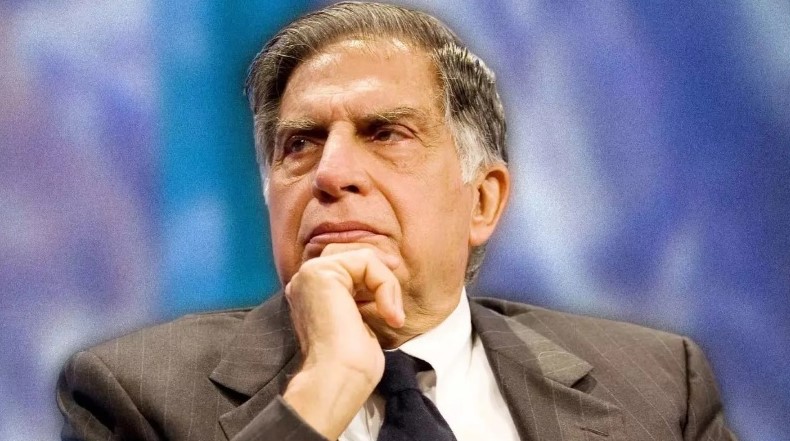India lost a a great visionary, industrialist and a philanthropist today. Shri Ratan Tata, former chairman of Tata Sons, breathed his last on October 9 2024. He was a beloved businessman, known for his humility, compassion, integrity and ethical leadership. His commitment to philanthropy has touched the lives of millions of people across the country and has served as an inspiration to generations alike.
Late Shri Ratan Tata was recently honoured with the PV Narasimha Rao Memorial Award for his commitment towards welfare of the society. PV Narasimha Rao Memorial Award, named after the former Prime Minister of India, recognises individuals that show commitment to philanthropy and humanitarianism.
As we bid him adieu and pray for his soul to rest in peace, let us take a walk back down the memory lane to the philanthropic initiatives of Ratan Tata, highlighting his dedication to social welfare and sustainable development.
Tata Trusts
Shri Ratan Tata has played an instrumental role in reaching Tata Group to global prominence. He guided the group through periods of economic reform and globalisation. However, his contributions exceeded far beyond the business world.
Under his leadership, Tata Trusts, one of the largest charitable organisations in India, consistently supported various projects in education, healthcare, and rural development sector. His philosophy was, “the success of a company is intrinsically linked to the welfare of society.”
Education
Shri Ratan Tata had believed that education is the key to empowering the youth and creating a better society. He invested in several educational initiatives during his life, both in India and abroad. Some of his notable contributions include:
Tata Education and Development Trust, a philanthropic affiliate of the Tata Group, endowed a $28 million Tata Scholarship Fund that will allow Cornell University to provide financial aid to undergraduate students from India.
In 2010, Tata Group companies and Tata charities donated $50 million for the construction of an executive center at Harvard Business School.
In 2014, the Tata Group gave ₹950 million to IIT, Bombay, the largest donation received in its history and formed the Tata Center for Technology and Design to develop design and engineering principles suited to the needs of people and communities with limited resources.
The group formed the MIT Tata Center of Technology and Design at the Massachusetts Institute of Technology (MIT) with a mission to address the challenges of resource-constrained communities, with an initial focus on India.
Medicine
Apart from education Shri Ratan Tata was also a patron of medical research and innovation, especially in the fields of cancer and infectious diseases. Some of his contributions in the field of medicine include:
Tata Memorial Hospital, a leading cancer treatment and research center in Mumbai, which offers free or subsidised care to over 70% of its patients.
Tata Medical Center, a state-of-the-art cancer hospital in Kolkata, which caters to the eastern and northeastern regions of India.
Tata Trusts, a group of charitable organisations that run various health programs and initiatives, such as the Tata Cancer Care Program, the Tata COVID-19 Response Program, the Tata Water Mission, and more.
Tata Institute of Fundamental Research, a premier research institution in Mumbai, which conducts basic research in physics, chemistry, biology, mathematics, and computer science.
Rural Development
Shri Ratan Tata was also committed to improving the lives and livelihoods of the rural poor in India. To honour his commitment, Tata Trusts run various rural development programs and initiatives, such as the Tata Digital India Program, the Tata Power Community Development Trust, the Tata Steel Rural Development Society, and more, which help in enhancing income, productivity, and sustainability of the rural population.
Environment
Shri Ratan Tata was also passionate about protecting the environment and promoting sustainable development.
Under his leadership, Tata Power, which is India’s largest integrated power company, has invested in renewable energy sources such as solar, wind, hydro, and waste-to-energy. It has also implemented various measures to reduce its carbon footprint and conserve natural resources.
Furthermore, Tata Motors, which is India’s leading automobile manufacturer, has developed and launched eco-friendly vehicles such as the Tata Nexon EV, India’s first fully electric SUV, and the Tata Nano CNG, the world’s cheapest car that runs on compressed natural gas.
Tata Cleantech Capital, which is a joint venture between Tata Capital and the International Finance Corporation, provides financing and advisory services for projects in the areas of renewable energy, energy efficiency, water, and waste management.
Apart from these economic initiatives, Tata Trusts, also run various environmental programs and initiatives, such as the Coastal and Marine Biodiversity Conservation Project, the Himalayan Biodiversity Conservation Project, the Tata Water Mission, and more.
Awards
In addition to being recently honoured with the PV Narasimha Rao Memorial Award, Late Shri Ratan Tata’s philanthropic journey has been further highlighted by his reception of two of India’s highest civilian awards: the Padma Vibhushan in 2008 and the Padma Bhushan in 2000. These accolades underscore his commitment to nation-building and his profound impact on society.
Conclusion
Ratan Tata was a visionary philanthropist who made a lasting impact in India and the world. He has donated more than 65% of his shares in Tata Group to charity, making him one of the most generous donors in history. He has also inspired and mentored many other entrepreneurs and philanthropists to follow his example and contribute to the society. He was a true role model and a legend in his own right.


